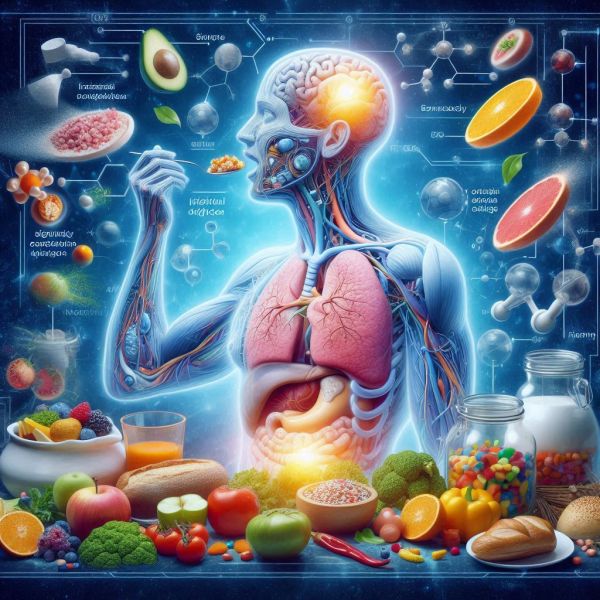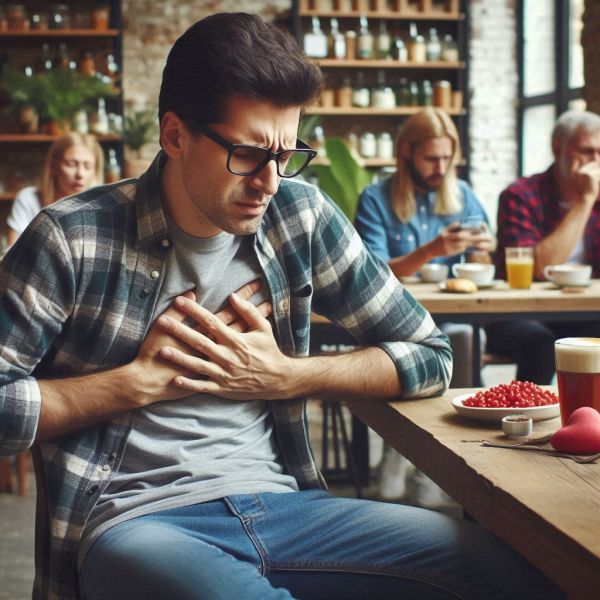
Let’s understand how food passes through our body.
Food enters the oral cavity, then passes through the pharynx into the esophagus, and from there into the stomach. Next comes the intestine, consisting of two sections: thin (includes the duodenum, jejunum, and ileum) and large (cecum, colon, and rectum, which ends with the ampoule and anus). The path that food takes in our body is approximately 7-10 m. The longest section is the small intestine (6-9 m).
What is the difference between the large and small intestines when food passes through our body
How food passes through our body? The small intestine is thinner than the large intestine, and also much longer. But the departments differ not only in appearance. They perform different tasks.

In the small intestine, enzymes break down food into simple compounds that diffuse through the intestinal walls into the bloodstream. In the large intestine, water is absorbed from the food gruel.
What happens to food when it is digested?
In our body, food is transformed into substances necessary for the construction of our body and into energy. Complex compounds in food, in the gastrointestinal tract, are broken down into simpler ones with the help of enzymes (dissimilation). Then they are absorbed into the blood and carried with it to the cells of the body. In the cells, proteins, fats and carbohydrates characteristic for us are produced from them (assimilation). For this transformation, as well as for other processes, energy is needed, which the body also receives from food. For example, the breakdown of glucose (dissimilation). Undigested remains are excreted from the body.
Why do we feel hungry when chewing gum?
When chewing gum, the secretion of saliva is stimulated. The brain sends a signal to the stomach: prepare for digestion. After that, the stomach starts to produce more gastric juice. As a result, the feeling of hunger appears.
Why do we feel thirsty?

Water in our body performs many important tasks. In particular, nutrients enter the blood in the form of a solution. With the help of water, the body regulates the thermal balance. Since our body constantly loses water (for example, in the process of breathing, sweating, etc.), it is necessary to replenish its reserves. The hypothalamus contains a center that gives the command that we perceive as thirst. This is how the brain reports that the body has lost a lot of fluid.
An adult can live 2-3 weeks without food, but only 5-7 days without liquid. And all because our body does not store fluid, although there are stores of energy obtained from food.
Why do people have heartburn?

Our esophagus has two sphincters (upper and lower) – these are valve muscles that close the openings of the esophagus. When food enters the stomach, what does the lower sphincter do? It prevents food gruel with gastric juice and other substances from flowing back into the esophagus. But it happens that this valve does not work, and a person feels heartburn (burning behind the sternum that spreads upwards). Sometimes it happens in healthy people, and sometimes it is a consequence of an illness.
How does food pass through our body when a person vomits?
The vomiting reflex is controlled by a center in the medulla oblongata. During vomiting, the muscles of the abdominal press and diaphragm contract. The exit of the stomach into the duodenum is shortened, the entrance from the esophagus relaxes. The contents of the stomach are thrown out through the mouth (and sometimes the nose). Vomiting can occur in healthy people. For example, during excessive physical exertion or during a stressful situation. Also, vomiting can be a consequence of poisoning, infection, etc.
Why is there a loose bowel movement in case of indigestion?

Diarrhea is a consequence of infections, poisoning or other diseases. The intestine tries to resist, the digestive process accelerates. The water does not have time to be absorbed, the food gruel remains liquid – and so does the stool.
Help with diarrhea after eating.

With diarrhea, a person often feels weak, lethargic. First of all, this is due to the fact that the body is dehydrated. He also feels a lack of vitamins and trace elements. With the help of special drugs, time and mineral water, it is necessary to restore the lost. You also need to follow a diet.
It is recommended to eat bananas, boiled rice, applesauce, crackers.
Why does intestinal gas have an unpleasant smell?
Most intestinal gases, such as hydrogen, carbon dioxide, and methane. They consist mainly of odorless substances. After eating certain products, gasses with an unpleasant smell are formed in the process of their decomposition in the intestines. First of all, it is hydrogen sulfide. No wonder it’s used for stink bombs.
How does food pass through our body while standing on our head?

It’s inconvenient, but possible. Food should fall out of the mouth due to gravity. But the swallowing reflex allows you to eat even in this position. As soon as the tongue presses the chewed food to the palate.
Аnd pushes it into the pharynx, we swallow automatically.